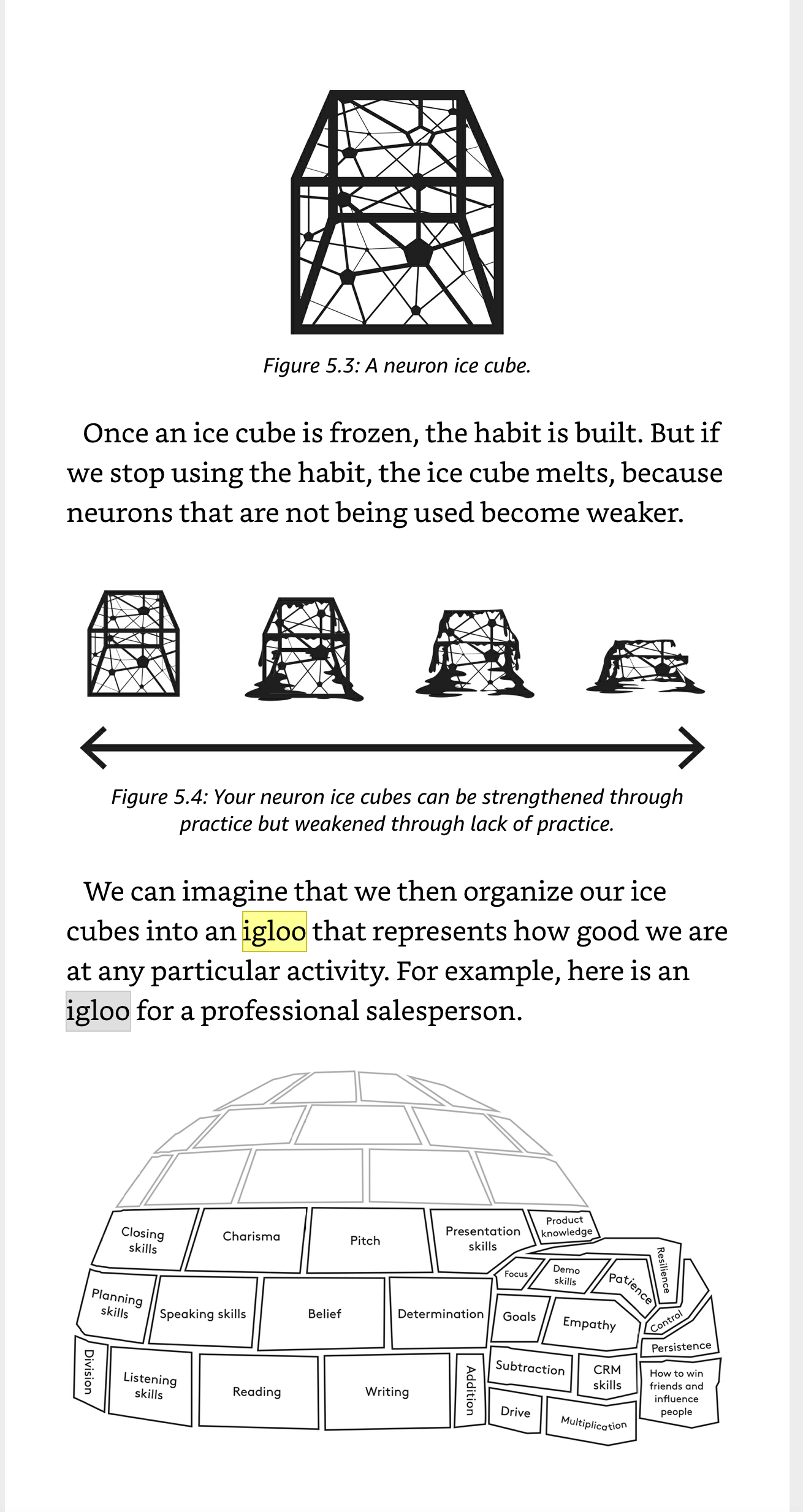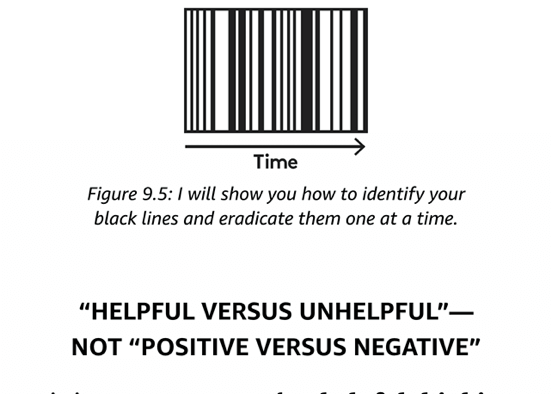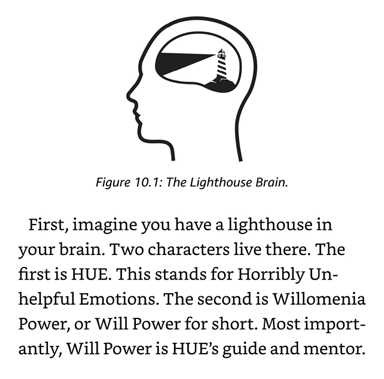“If you don’t truly understand how your brain and body work, it will be more difficult to maximize your potential” (Dr. Jon Finn[i], author of the Best-Selling book, The Habit Mechanic[ii]) which took Dr. Finn over 20 years to write, and was not intended to be read once, and left on a shelf to collect dust. This book contains Dr. Finn’s life’s work, “where he’s trained and coached over 10,000 people: Global businesses, high-growth start-ups, individuals, elite athletes, coaches and teams, leading educational institutes, and families” to thrive and succeed in our challenging modern world. This book is exactly what I have been looking for, as it is full of practical and simple exercises in each section that we can all apply for immediate results, backed by science.
Watch this interview on YouTube here https://youtu.be/CO-_znUut28
On this episode you will learn:
✔︎ How Dr. Finn, from Leeds, UK, took three psychology related degrees to inform his work with The Habit Mechanic and his Tougher Minds Consulting Firm.
✔︎ What Dr. Finn discovered made Roger Bannister's training more "efficient and effective" than his competitors.
✔︎ How he has used his Habit Mechanic Model to develop high performing sports teams.
✔︎ Simple and easy ways that we can all fine-tune our habit-building muscles.
✔︎ Strategies to teach others how to do the same.
✔︎ Unique visuals for improving time management, and overcoming obstacles.
Dr. Finn, who founded the award-winning Tougher Minds Consultancy, and has three psychology-related degrees, has been working in the field of resilience, performance, and leadership science for over 20 years, and through his work, has uncovered WHY people fail, while trying their very best.
For returning guests, welcome back, and for those who are new here, I’m Andrea Samadi, author, and educator, with a passion for learning, understanding difficult concepts, and breaking them down so that we can all use and apply the most current research to improve our productivity and results in our schools, sports environments, and modern workplaces. On today’s EPISODE #210, we will explore Dr. Finn’s cutting-edge insights from psychology, behavioral science, neuroscience, and world champions that helps organizations develop “Habit Mechanics” and “Chief Habit Mechanics” (we will uncover the difference between the two) building resilient people, outstanding leaders, and world-class teams. I’ve been looking for a book that bridges the science with all of the strategies we’ve been covering on this podcast, and today we will connect the dots with theory, practice and results, as we ALL learn how to “fine-tune our brain, and supercharge how we live, work and lead.”
Before we meet Dr. Finn, I have to give you a bit more of his background, because when reading his book, I was floored with how he connected the research to habit building, with examples that we can all understand and remember.
Dr. Finn and his colleagues have a collective experience of over 100 years in helping people, leaders, teams and organizations build better habits. They have worked extensively in the highest levels of elite sport, advised the Government and think tanks, had their work featured in The Sunday Times, The Sunday Telegraph, People Management and T.E.S, published peer-reviewed papers and popular books within the area of performance psychology, and helped 10,000s of people be their best more often.
His company, Tougher Minds work globally and I’ll include a list of the people, teams and organizations they have helped fulfil their potential in the show notes.
– ING
– Janus Henderson Investors
– Aon
– HSBC
– Mercedes
– Chaucer
– John Deere Financial
– The Professional Golfers’ Association
– Premier League Football Managers
– Deloitte
– The Rugby Football League
– The Scottish Golf Union
– Yorkshire County Cricket Club
– European Tour Golfers
– Sky Sports
– England Athletics
– Rugby League Super League Head Coaches
Let’s meet Dr. Jon Finn and uncover why traditional approaches to being our very best, that we might all still be using, are outdated and ineffective.
Welcome Dr. Finn, all the way from Leeds, United Kingdom which I had to look up, is only about 4 hours from Worthing, Sussex, where I was born.
Dr. Finn, I’ve got to tell you, I’m beyond thrilled to have found you and your book. Thank you very much for coming on the podcast to share your life’s work and strategies with all of us.
INTRO Q: I actually started reading your book last week when I was going in for a routine medical procedure (nothing serious). I had an IV in my right arm, was holding my phone with that hand, (I don’t like wasting time) and was jotting down notes while I was reading, and was so excited by what I was learning, that when the procedure was over, I completely remember telling the doctor about your book, and how profound it was tying it to the past few interviews I’ve done on Habits on the podcast. I’m not sure if he added it to his reading list, but hopefully all the other patients around me found your book on Amazon, after I had reviewed it for them.
I was blown away from the first few pages, and we hadn’t even set up our interview date at the time. Can we begin with where this all started for you-- how you used failure as a catalyst with your story where you noticed that mental skills were more important than physical skills, launching your career into performance psychology?
INTRO B: Then, how did your three psychology-related degrees inform your work as a consultant, and with writing The Habit Mechanic?
Q1: Dr. Finn, you’ve helped over 10,000 people using your unique consultancy tactics (that are comprehensive, thorough and backed by science. Why did you decide it was time to share your teachings, and put them into writing for the world to see?
Q2: What stuck out to me right in the beginning of the book, (aside from the unique way that you made the concepts I was reading stick with analogies that we’ll get to) but it was that you revealed the secret science behind an iconic sporting success, Roger Bannister in STEP 1 of your book, Discover Your Superpower. We’ve all know how Roger Bannister was the first person to break the record for the four-minute-mile, but can you tell us why Bannister succeeded where many others had failed, and what did he have to “learn” to make his training more “efficient and effective” than his competitors?
2B: What about a sports team? When I saw that you worked with the Head Coaches of The Rugby League Super League, I couldn’t miss asking what science-based advice you would offer to a head coach of a sports team to create a championship team?
Q3: I really do believe we all have superpowers, and the key to unlocking our potential is when we figure out what our superpower is and then learn how to use it, with the understanding that “science shows that with deliberate and focused practice we can improve any skill” (page 63, The Habit Mechanic). Can you explain how we learn a new skill, and turn it into a habit, with your analogy of the “ice cube” so we all remember this concept as we apply it?

Q4: We have covered habit building on some of our past episodes, specifically episode #103[iii] where we talked about how to set goals in different areas of our life, but after reading your book, I can see that many times, this goal-setting activity happens at the end of the year, and needs to be reinforced to be strengthened—and you show us how in your book. Can you elaborate on habit building, maybe some mistakes you see that are common as to why habit or skill building don’t stick, and what we MUST do to build new skills that do stick with your igloo analogy?
Q4B: How do you know where your gaps are, or what bricks to build in your igloo?
Q5: There was another analogy that stuck out to me when reading The Habit Mechanic and that was the bar code where you get us to think about how to eliminate destructive habits that fill up our day. I know we all have 24 hours in a day and I’m always trying to find ways to “cheat” the system and find more time. I think this idea is brilliant. Can you explain the bar code analogy, and how we identify our super-habits vs destructive habits to improve our productivity in a way that it sticks?

Q6: And you’ve got another powerful analogy to help us to move past obstacles and actually achieve those things we write down and label them our “goals.” Can you explain your unique “Lighthouse Brain” model that you cover in Step 2 of the Habit Mechanic Process so we can learn how to better manage those stressors that come our way and try to knock us off course from our goals?

Q7: How can people use and understand behavioral science/your Nine Action Factors to help build better habits for work success? What should we all know about learning NEW habits and skills, and becoming expert habit builders and do you have a fancy way for us to remember and switch on these ACTION factors so we can ALL be sure to implement them after this interview?
Q8: We see books that cover only habits, or sleep, or diet, or exercise, or motivation, or stress management, or confidence, or productivity, or performing under pressure, or learning how to learn, or leadership, or teamwork. But your book covers all these areas? Why did you write the book this way?
Q9: What is the difference between “Habit Mechanic” tools and “Chief Habit Mechanic” tools?
Q10: As we sum up everything on your life’s work of becoming a Habit Mechanic, is there anything important that I might have missed?
Dr. Finn, I want to thank you for coming on the podcast, and sharing your tools, resources and strategies for us to all become Habit Mechanics, and Supercharge How We Live, Work and Lead. For people to learn more about your book, is the best place www.tougherminds.co.uk ?
I will put all the links for people to follow you in the show notes, and look forward to following your work in the years to come as more science will reveal new strategies that I know we will all want to learn.
FREE TRAINING AND TOOLS https://www.tougherminds.co.uk/free-training-tools-and-insights/
CONTACT DR. FINN https://www.tougherminds.co.uk/contact/
FOLLOW DR. FINN
Twitter https://twitter.com/TougherMinds
LinkedIn https://www.linkedin.com/in/dr-jon-finn/
FOLLOW ANDREA SAMADI:
YouTube Channel: https://www.youtube.com/c/AndreaSamadi
Website https://www.achieveit360.com/
LinkedIn: https://www.linkedin.com/in/samadi/
Facebook: https://www.facebook.com/Achieveit360com
Neuroscience Meets SEL Facebook Group https://www.facebook.com/groups/2975814899101697
Twitter: https://twitter.com/andreasamadi
Instagram: https://www.instagram.com/andreasamadi/
REFERENCES:
[i] https://www.tougherminds.co.uk/
[ii] The Habit Mechanic by Dr. Jon Finn Published April 5, 2022 https://www.amazon.com/Habit-Mechanic-Fine-Tune-Brain-Supercharge-ebook/dp/B09VNNY3GR/ref=sr_1_2?crid=L04X6G0XCL7T&keywords=habit+mechanic&qid=1650127357&sprefix=habit+mechanic%2Caps%2C122&sr=8-2
[iii]Neuroscience Meets Social and Emotional Learning Podcast EPISODE #103 on “3 Ways to Reset, Recharge and Refuel Your Brain” https://andreasamadi.podbean.com/e/the-neuroscience-of-leadership-3-ways-to-reset-recharge-and-refuel-your-brain-for-your-best-year-ever/
No comments yet. Be the first to say something!